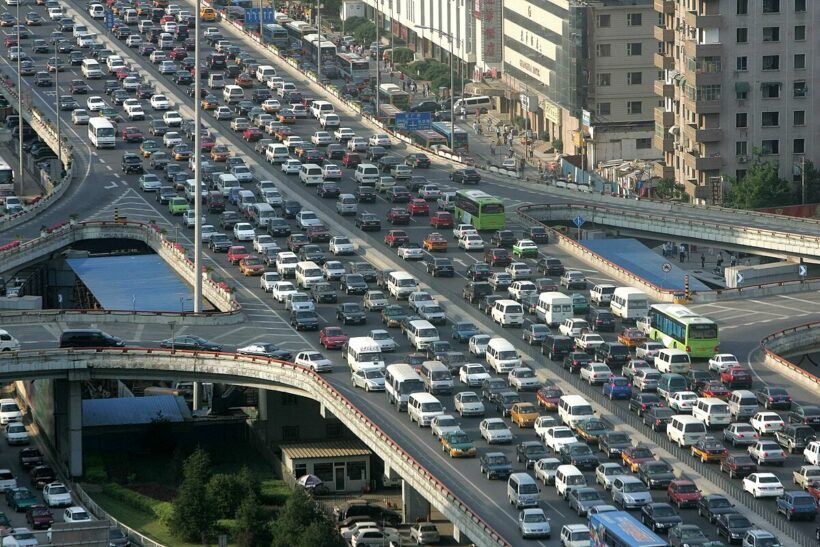On 19 July the Asian Development Bank euphorically released the economic growth estimates for Asian countries for 2023 and 2024: after the pause imposed by Covid, the Asian economies will grow by an average of 4.8%. According to the data, published by Inter Press Service and also picked up by the Spanish edition of Pressenza, China, India, Malaysia, the Philippines and Vietnam grew by more than 7% last year. Good news? Not really.
In the last few days news has also spread that Earth Overshoot Day spilled out on 2 August this year. This means that from 1 January until this date, humanity has already exhausted the available resources on our planet for the year. In the remaining five months, i.e., from now until 31 December, we will over-exploit the Earth, squeezing resources beyond their limits, bringing the planet to the brink of collapse, but also consuming what would belong to future generations.
Another fact: the poorest half of humanity (2.5 billion adults) live on less than 560 euros a month, according to the World Inequality Database. 700 million people are extremely poor and live on less than 1.90 dollars a day. According to the French Inequality Observatory, “emerging countries that have experienced higher growth have often seen their internal inequalities increase, which contradicts the thesis that economic development alone is enough to reduce inequality”. Meanwhile, the world’s richest 1%, largely American, have given up nothing. Their share of the pie remains the same as it was in the early 2000s, after 20 years of rising incomes”.
These three factors – economic growth, excessive impact on the planet and growing inequality – show that we are not at all on the path to a world of greater prosperity for all.
That economic growth (and thus GDP growth) is not synonymous with citizens’ wellbeing has long been known. The measurement of GDP does not take into account social problems such as latent inflation, pollution, people’s education and health, or even the equitable distribution of opportunities. “It measures neither our ingenuity, nor our courage, nor our wisdom, nor our knowledge, nor our compassion. It measures everything but what makes life worth living,” said Robert Kennedy in a famous speech in 1968.
For example, GDP increases with armed conflict through arms sales and, after destruction, through post-war reconstruction. Road accidents produce GDP, and thus economic growth, through medical care for the injured, repairs and the purchase of new cars. Growing vegetables in one’s own garden does not generate GDP, buying them in the supermarket does. Caring for an elderly person at home does not generate GDP, sending them to a nursing home, if the family can afford it, does.
In China, the shift from bicycles to cars has led to a huge increase in GDP, but also to a tremendous deterioration of living conditions in big cities, amid smog, noise and congestion.
According to Greenpeace, “current plastic production will double 2015 volumes by 2030-35 and triple by 2050”. Probably especially in so-called “developing countries”, which will contribute to inflated economic growth figures. Much of this plastic will end up in the seas.
Since the 1960s, attempts have been made to create alternative indicators of wellbeing or happiness that would take into account the many aspects “forgotten” in the calculation of GDP: the costs of environmental degradation, unpaid work, health and education levels of the population, and so on. Many more innovative measures have been proposed over the decades, such as the Human Development Index or the Genuine Progress Indicator (GPI). Some indicators also try to include people’s perception of happiness, such as the Happy Planet Index or the Gross Inner Happiness Index (GHI). These are attempts to move away from the logic of money as the sole measure of wellbeing, the GDP-fuelled logic to which the vast majority of economists, governments and businessmen still resort today.
With the impetus of thinkers such as Serge Latouche in France and Mauro Bonaiuti and Maurizio Pallante in Italy, various movements have emerged since the end of the last century that openly challenge the ideology of infinite growth, such as the Association for Degrowth and the Happy Degrowth Movement. These movements, which today are organised all over the world with international conferences and meetings, claim that degrowth is not a political programme, but simply a slogan. They do not want to impose economic degrowth by force on anyone, least of all on the world’s poor. In fact, it would be more correct to speak of a-growth (using the same root as a-theism): to get out of the logic of infinite growth on a planet with limited resources.
“Degrowth has often been accused of being a luxury for the rich, obese from over-consumption,” writes Serge Latouche in his book The Gamble of Degrowth. “Maintaining, or worse, introducing the logic of growth in the South [of the world], on the pretext that this will allow us to escape from the misery that growth itself has created, can only further westernise these parts of the planet.” “In Africa, until the 1960s, before the great development offensive,” continues Latouche, “there was still food self-sufficiency, but didn’t the imperialism of colonisation, development and globalisation destroy this self-sufficiency?
Degrowth will be proposing a real change of perspective that can be achieved through the eight “R’s”: revalue, redefine, restructure, relocate, redistribute, reduce, reuse, recycle. Someone put it more succinctly: Less would be much more.






